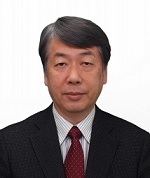Message from Nagae, Tomofumi FOREST Program Officer
FOREST Program Officer:Nagae, Tomofumi(Specially Appointed Professor, Research Center for Nuclear Physics, Osaka University)

Research is a process that inspires one new idea after another, creating the seeds of unique research that no one has ever thought of before. When a group of researchers of the right size is brought together and given a budget investment of the right size, research that would have been impossible in the past is born in that place. Among these, the Fusion Oriented Research for Disruptive Science and Technology Program is unique in that it covers a wide range of research topics, from basic science to applied technology. In addition, it is designed as a highly ambitious initiative to support research projects that inevitably need to take place over long time spans, from basic to applied research. This panel, of which I am the PO, covers basic science from the microscopic world of atomic nuclei and elementary particles to the macroscopic world of planetary systems, space and astronomy, and so on, and its main pillars are physics and plasma fields, which create a venue for highly abstracted research in mathematics and creative research in the quantum world. Those who are interested in participating in this program are encouraged to break away from the traditional academic framework and view the new academic horizons that emerge from it. If you look around from the perspective of a young researcher, you may be able to see a new world that researchers in the middle of their careers who are immersed in the current research framework will not be able to see.
This program is strongly aware of the need to allow for risks regarding the originality, interdisciplinarity, and extensibility of such basic science research. Therefore, to provide sufficient support, the program is characterized by the fact that the support is for long-term research for a period of seven years in principle, with a maximum of ten years. There is no reason not to take advantage of this opportunity. Another feature of the program lies in one of its goals, which is to see how far we can expand encounters between young researchers from other fields and disciplines. The panel, which has very strong ties to basic science fields within the overall project, will support researchers as they tackle various research issues from the basics and create partnerships with many people to develop careers that will open up the future of their research fields through the creation of new research fields.

